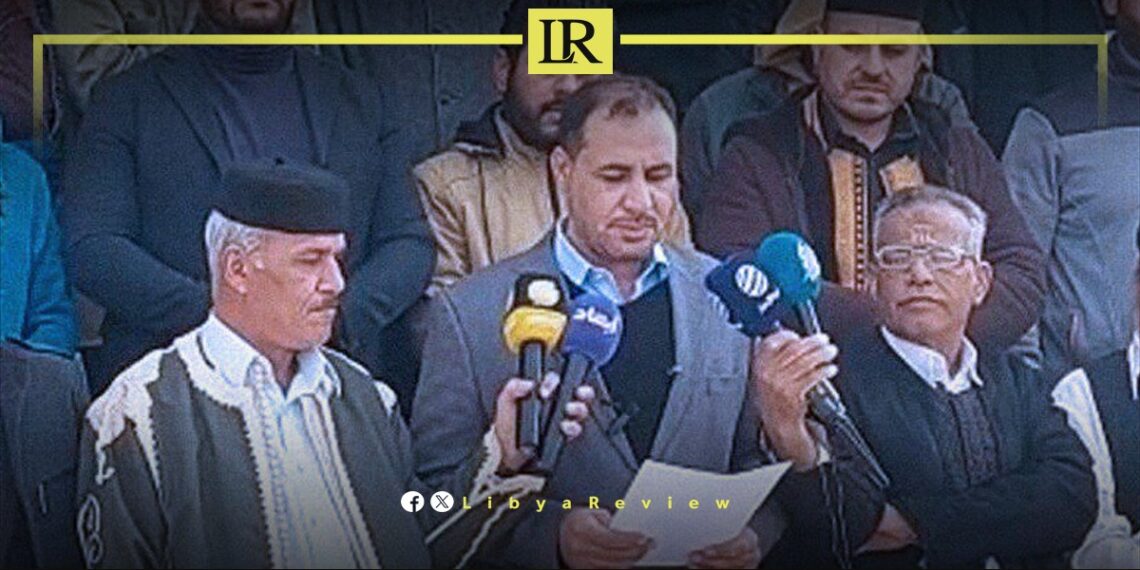The “National Action” Coordination in the Libyan city of Bani Walid has called for the formation of a unified government capable of consolidating the country’s institutions and extending its control over all of Libya. The group emphasised the need to renew legitimacy through free and fair presidential and parliamentary elections.
In a statement, the coordination expressed concerns over the current approach to national reconciliation managed by the Deputy of the Presidential Council, it stated that it does not meet the aspirations of the Libyan people. They advocate for a new mechanism that ensures the active and transparent participation of all parties.
The statement also urges all national forces to join efforts to save Libya from the specter of war and division, highlighting the necessity of a comprehensive national reconciliation among Libyans.
This call to action reflects the ongoing challenges in Libya’s political landscape and the critical need for unity and effective governance to navigate the country.
Last month, Fathallah al-Siriri, a member of the 6+6 Joint Military Committee (JMC) representing the High Council of State (HCS), emphasised that the lack of political consensus among Libyan factions and the prevailing mistrust needs to be addressed through “Libyan-Libyan” meetings.
In a press statement, he highlighted the presence of external obstacles hindering the Libyan parties’ consensus. These obstacles sometimes create contentious points among the parties and underscore the urgent need for forming a unified government in Libya.
Al-Siriri stated that stabilising the country and successfully conducting elections are impossible under the current situation of having two governments. He proposed that a unified government should be a streamlined one, focusing only on sovereign Ministries. The confidence should be given to the head of the government rather than the entire government, with its primary task being the supervision of elections. He emphasised that no progress could be made in the economic and investment sectors as long as two governments exist.
This statement sheds light on the complex political landscape in Libya, where the presence of two parallel governments has been a major impediment to peace and economic development. The call for a unified government underscores the urgent need for national reconciliation and a collaborative approach to address the country’s challenges.


